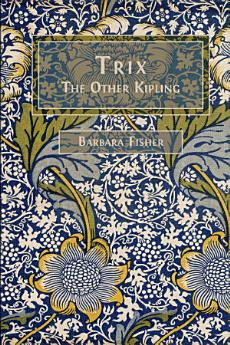Trix: The Other Kipling
អំពីសៀវភៅអេឡិចត្រូនិកនេះ
This book provides the first account of Trix’s life, beginning with the horrible childhood she shared with Rudyard as a Raj orphan in England. The biography follows adolescent Trix as she returned to India, where her brother encouraged her to write poems and stories, which were regularly mistaken for his. Her marriage to a stiff Scottish officer is chronicled from its hopeful beginnings through its childless, cheerless middle to its calm and compromised end. Trix’s bouts of mental illness are described in sympathetic detail.
Turning her attention to Trix’s oeuvre Barbara Fisher locates and attributes all of her short fiction, poetry, and journalism, giving special attention to Trix’s two ambitious but flawed novels. She also puts into historical context Trix’s long and productive participation as a medium for the Society for Psychical Research.
Most importantly, Trix: The Other Kipling gives a voice, a mind, and a heart to a misunderstood, misrepresented, but indomitable woman – an accomplishment which will be of great interest to readers interested in Victorian women authors, in the cultural interchanges between England and colonial India, in serious psychical research, in the early treatment of mental illness, and more generally, in the everyday life and struggles of intellectual women of the 19th and early 20th century.
អំពីអ្នកនិពន្ធ
Barbara Fisher graduated from Bennington College with a B.A. and received her M.A. and Ph.D. degrees in English Literature from Columbia University. For many years, she taught 18th and 19th Century English Literature, mostly at Eugene Lang College, the undergraduate college of the New School University in New York City. She has also been a book reviewer for major U.S. newspapers including the The New York Times, The Washington Post, and The Boston Globe, for which she wrote a book column every other Sunday for fifteen years. This is her first book as an independent scholar. She is currently working on a biography of mid-20th Century cultural and literary critic Lionel Trilling.




